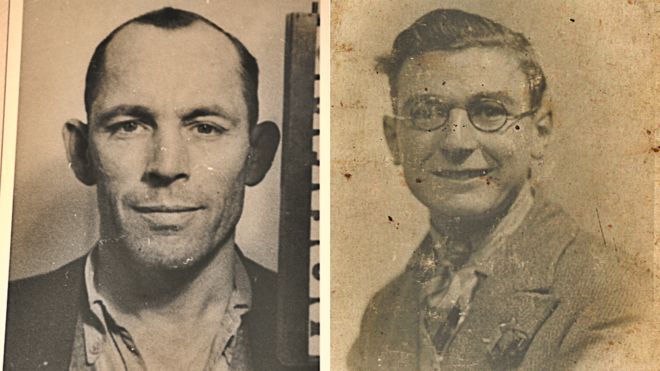They were arrested by Hitler’s men in the German occupied Channel Islands just a few months after their daughters were born. These men lived on different Channel Islands, but were both deported for giving out BBC news reports. This was a banned practice, as German armed forces occupied the Channel Islands from June 1940 until May 1945. Sadly, they never made it back home.
Due to a BBC investigation conducted more than seven decades later, the mystery surrounding the final resting places of two resistance heroes killed by Nazis has been solved.
Dr. Gilly Carr is an academic at Cambridge University, and she has spent ten years looking around the world for archives with records of Nazi prisoners. Dr. Carr reads testimonies for motivation and for a reminder of what people went through during that time. It drives her to get justice for the victims and more information for the families. She has finally discovered new information pertaining to the fates of Joe Gillingham and Joe Tierney.
Joe Tierney was arrested five months before his daughter was born. Ultimately he was deported in September 1943 to a prison in Dijon. “He was very, very strong, he must have been so brave,” said his daughter Pat Fisher. “It’s very difficult and I just would’ve loved to have met him.” Joe Gillingham was one of five members of the Guernsey Underground News Service (GUNS). He too was deported and put into prison for spreading banned news and for wireless offences. “There was a lot of anxiety for my mum, to spend years trying to find out what happened to him, waiting for him to come back after the war had finished,” Gillingham’s daughter Jean Harris told the BBC.
No one knew exactly what happened to either of the men once they were packed into cattle trucks and sent to prisons in the middle of Nazi Germany. As part of the BBC investigation, Dr. Carr took Pat and Jean to Europe to try to retrace their fathers’ steps in an attempt to find any clues possible.
By July 1944 the two men ended up in the same prison in Naumburg (Saale), Germany. It was so unsanitary that dysentery and dropsy were rampant. Men were dying at rates of 18 per week. A fellow incarcerated Channel Islander named Frank Falla, who survived the prison, said inmates were not allowed to smoke, talk, sing, hum or smile.
Harris said arriving on site felt like she was walking in her father’s footsteps. She realized how horrendous it must have been for those men. Her father finally left the prison in February of 1945, but where he headed next is unknown.
Dr. Carr uncovered paper records of German prisoners that showed Joe Gillingham died on March 11, 1945, from heart failure while residing in the city prison. He located this information from the Halle archives just 40 miles away. The family never knew, and he was cremated and his ashes buried in a nearby graveyard. There was a section allocated for people taken as Nazi prisoners.
Harris expressed relief in getting the closure she had searched for. She is now at peace because she knows where her dad is, and finally has an ending to the story.
However, Pat Fisher’s dad had a different ending. Shortly after he left the Naumburg prison in March, 1945 he took a grave risk and tried to escape.
At that time, Nazis were panicking and trying to cover up their egregious atrocities. German forces had almost been defeated by the Allies at this point. Joe Tierney managed to get away when he was being shipped off to a concentration camp in the Sudetenland (today part of the Czech Republic). Dr. Carr infers that Tierney could not find a reason to stay and felt that it was worth the risk of trying to escape. Men were dying from disease and hunger and were being shot at alarmingly high rates. But Tierney’s escape was short lived. He was captured in just a few short days, and sadly died less than a week before the end of the war.
Tierney’s death was described by his fellow prisoner named Albert Koch. He wrote a letter to Tierney’s widow once the war concluded: “He and I were placed in cattle trucks, and it was not till some days later that your dear husband died in my arms in Kaschitz at 11:30pm on 4th May 1945.”
Pavel Vareka, an associate professor at the University of West Bohemia, is heading a team that is currently excavating the mass graves in the area to better ascertain what actually happened. They know that two-thirds of prisoners died of disease or hunger, but the rest showed evidence of being shot to death.
Once the war ended, local German civilians had to rebury Tierney and an additional 233 prisoners in consecrated ground. Pat was relieved to finally know her father’s final resting place. The trip was a roller coaster ride of highs and lows for all three. After so much crying and other emotions, finally ending with the information she sought is the best feeling.
